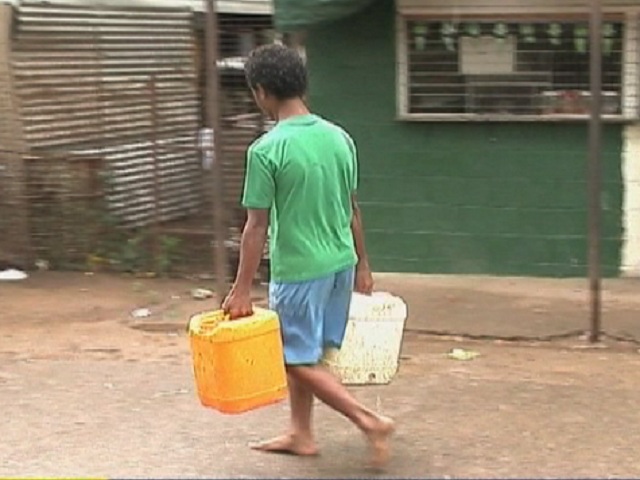by Kiwiana Ngabung – EMTV Online, Port Moresby
With over half the population of Papua New Guinea without access to clean water and sanitation, the effects are gravely concerning. That makes us part of the global 663 million people still without access to improved drinking water sources.
According to a report by Water Aid, PNG has the greatest percentage of people living without access to safe water. For the country this means, among other added consequences, people prone to unclean water and inadequate sanitation generally have poor health, and are more likely to suffer from diarrhoeal diseases and malnutrition.
Unfortunately, access to clean water in the country has only slightly improved and adequate sanitation services have somewhat declined over the last 20 years, UNICEF states.
Seeing the vitality and the need for Papua New Guineans to have these necessities, the national government developed the Water, Sanitation and Hygiene (WaSH) Policy 2015 – 2030. WaSH Policy is in line with PNG Vision 2050, National Strategy for Responsible Sustainable Development and the national goals and directive principles. Stakeholders involved are key to ensuring collaborative and feasible decisions are made to accomplishing 70% accessibility to water supply and sanitation.
Recently, World Bank, which is a stakeholder of WaSH, approved a credit of US$70million (PGK223 million) to support the country’s water sector. The funding aims to improve access to clean and reliable water supply in nine provincial towns and ten rural districts, in addition assist state-owned water institutions to expand and improve services in provincial centres.
“Clean and reliable water supply is absolutely essential to every facet of life in PNG supporting health, education, business and our daily lives,” said Anne Tully, Acting Country Manager for the World Bank for Papua New Guinea.
Moving forward, it is important that parties in PNG’s water sector consider the growing population, and carry out proper analysis on the severity of the issue that 60% of the population faces, in order for sustainable and successful outcomes.


